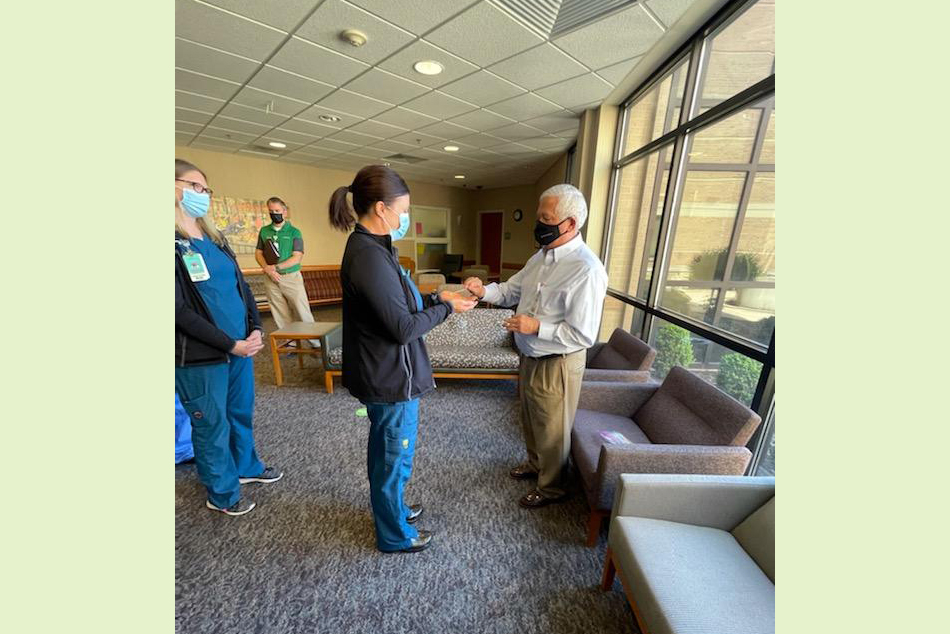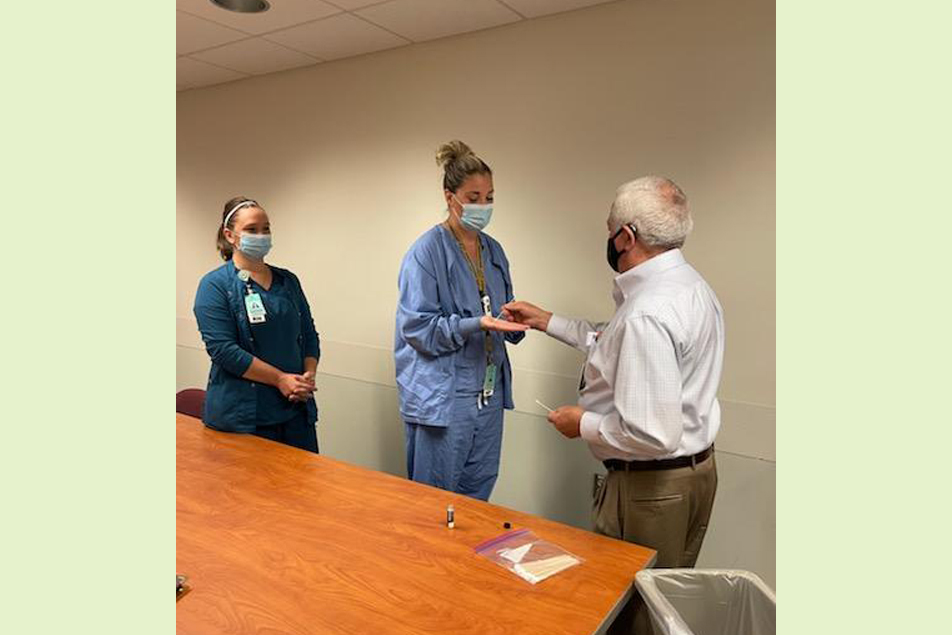
After a career of service that spanned more than 45 years, chaplain and employee assistance specialist Victor Kolch is retiring from his professional endeavors. We look back on his journey of more than four decades of facilitating emotional and spiritual support.
Early days
I am an ordained Lutheran minister. My initial dream was to become a Navy chaplain, and that’s where I was heading for many years. I wanted to start training in Rhode Island at the Naval Chaplaincy School and Center, but then I met a woman along the way.
My wife and I crossed paths at a Lutheran school in Kansas, and as we moved closer to getting married, I realized that she didn’t share my dream of being away from home for six months out of the year, so I revised my goal. We were married in 1973.
I started going to seminary at Concordia Seminary in St. Louis, Missouri, but in my first year there was a rebellion. The majority of the students and faculty left and declared themselves Concordia Seminary in Exile (a.k.a. “Seminex”). The Episcopal church in St. Louis offered us their space for worshiping. Saint Louis University, which was run by the Jesuits, offered us class space, and another United Church of Christ Seminary offered single students dormitory rooms. A Jewish realtor helped faculty who lost seminary housing find places to live. My wife and I were in an apartment where other married seminaries stayed.
I was ordained as a minister in 1975 and ended up back where I did my internship in central Connecticut. I got a job working with youth groups at a Lutheran church part time. I also became an alcohol counselor at Bristol Hospital in Bristol, Connecticut. I actually discovered I enjoyed being in the hospital setting more than the church.
Moving to the Midwest
In 1978, my wife’s sister was attending a Lutheran congregation in Indianapolis. There was a chaplain who oversaw her Lutheran women’s group who traveled from Fort Wayne. He was a chaplain at Lutheran Hospital on Fairfield Ave.
Over a cup of coffee with the chaplain, my sister-in-law mentioned that I was a minister, and that my wife and I wished to be closer to our family in the Midwest. He mentioned that they had an opening, and I should apply. I sent in an application and resume. I was one of about 25 applicants, one of three on-site interviews and in September of 1979, I started as a chaplain at Lutheran Hospital in Fort Wayne. I stayed there until March of 2019.
I loved working in the hospital setting because there’s a real genuineness and authenticity in not only providing ministry to people, but receiving ministry from people. It's a win-win.
Disaster relief
In the early 2000s, I was part of a collective effort – the Northeast Indiana Allen County Medical Response Team – made up of team members from all of the hospitals in Fort Wayne, Mercy Ambulance and the Department of Health. At that time, all hospitals contributed with money, personnel and supplies. The intent was to be ready to respond to a local disaster for this part of the state. For our maiden voyage, we were sent by the federal government to assist in the Miami area after Hurricane Andrew.
Many of us who were on that original Disaster Medical Assistance Team (DMAT) went on several other deployments. A number of us were part of Operation Hoosier Relief, to assist after Hurricane Katrina. In that instance, we were on the Emergency Management Assistance Compact (EMAC), which was a governor-to-governor agreement to send National Guard, mental and medical health, and logistics assistance.
I would go down to the main hospital off the coast in Gulfport, Mississippi, and go floor to floor doing crisis intervention work with staff. Nursing staff, physicians and other hospital personnel, whose personal homes had been destroyed, who’d sent children and family members off somewhere in the country for housing because there was no housing, were serving casualties from the hurricane every day. Without the support of their own loved ones. Situations like that are disasters within disasters. It's very meaningful work and you feel as if you’ve made a difference.

Joining the Parkview family
In 2019, I joined the Employee Assistance Program (EAP) team at Parkview. I triage situations and offer crisis counseling for Parkview coworkers and the 60+ companies who have contracts with the health system for EAP services. I was amazed when I started here how many people we could help. Not just for our team members, but schools, local businesses and churches. It’s a great fit for the Fort Wayne area.
A lot changed when COVID came. We weren’t able to see clients face-to-face, so we started utilizing video chat. The pandemic has really shown me the resiliency of the human spirit is something to marvel at in the midst of earthly challenges.
Stepping back
When I applied for the job with EAP, I told them I was planning to retire at the end of the month I turned 70, which is this month. And that’s still the plan.
I’m not giving up my role as a minister, so I’ll still have my specialized pastoral ministry. But it’s time for me to claim a far more emotionally and physically available presence as husband, father and grandfather. They have shared me with so many others for so many years. Now I need to focus my greatest attention on them and my faith. And if there’s time, some fishing and hunting.
I can tell you for certain, I have felt nothing but blessings throughout my whole career.